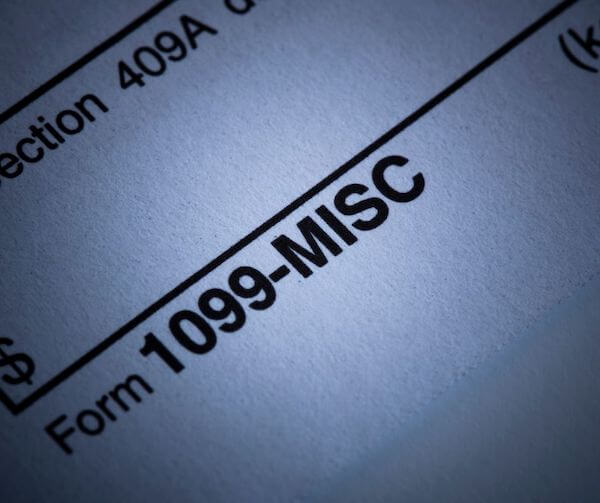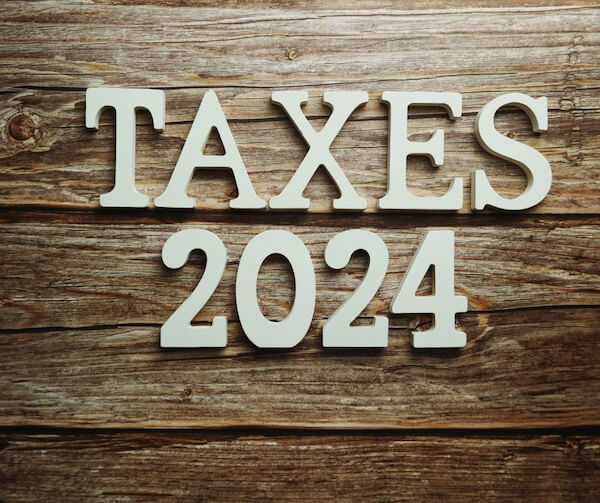While the 2023 tax filing season is underway, we believe that it’s prudent to know about the tax changes in 2024 that have already been implemented.
At Tuffy & Associates, we like to stay ahead of the curve, giving our clients as much information as possible so that they have the chance to update their withholdings early on and take advantage of any tax breaks that are being offered by the federal government.

Here are 14 tax changes in 2024 that have been implemented this year that we believe you should know about.
- RETIREMENT-RELATED CHANGES
- More penalty-free withdrawals are being allowed from 401(k)s and IRAS for investors under 59½. Domestic abuse victims can withdraw up to $10,000 and others can withdraw $1,000 for emergencies such as medical expenses or funeral costs without paying the 10% additional tax penalty.
- Funds in 529 education accounts can now be rolled over tax-free to a Roth IRA, for which there is a $35,000 lifetime cap. The Roth IRA must have been open for more than 15 years.
- Owners of Roth IRAs no longer need to take the required minimum distributions.
- Plan sponsors (usually employers) can create emergency savings accounts for participants who can then make Roth pay-ins on an after-tax basis.
- IRA investors 70½ and older can transfer up to $104,000 to a charity without having to pay tax on the withdrawal.
- Employers with no existing retirement plans for their workers can in 2024 offer starter 401(k) accounts with default automatic enrollment (with a pay-in cap the same as that for IRAs). In addition, student loan relief can be offered through workplace retirement plans.

Photo: AtlasComposer. - Limits on workplace retirement plans and IRAs are increasing this year, with the maximum 401(k) contribution now set at $23.000. People born before 1975 can contribute an extra $7,500. These limits also apply to 403(b)s and 457 plans. For holders of Simple IRA plans, there is now a $16,000 cap, plus individuals aged 50 and older will have an additional $3,500 cap.
- The cap for traditional IRAs and Roth IRAs is now $7,000. Individuals aged 50 and older will be able to avail of the additional catch-up contribution of $1,000.
- The income ceilings on Roth IRA pay-ins are higher in 2024. Contributions phase out for couples making an adjusted gross income between $230,000 and $240,000 and single payers making an adjusted gross income between $146,000 and $161,000.
- Phase-outs for holders of traditional IRAs are being applied to couples making an adjusted gross income of between $123,000 and $143,00 and covered by 401(k)s, as well as single investors/household heads making between $77,000 and $87,000. If only one spouse is covered by the plan, the phase-out range for deducting pay-ins for the uncovered spouse is $230,000 to $240,000.
- PAYROLL TAXES
- The Social Security Administration recently announced that the 2024 wage base limit will now be $168,600, up $8,400 from $160,200 in 2023. The wage base limit is the maximum wage that is subject to tax for a particular year. The social security tax rate on employers and employees remains at 6.2%.
- The nanny tax threshold for 2024 is now $2,700, a $100 increase from last year.
- THE KIDDIE TAX
- The first $1,300 of unearned income from a child aged 19 to under 24, if a full-time student, is tax free.

Photo: Getty Images. The next $1,300 will be taxed at the child’s rate, with any excess of that paid at the parent’s rate.
- ELECTRIC VEHICLE TAX BREAKS
- Buyers of electric vehicles are eligible for a tax credit of as high as $7,500 in 2024. You can choose to implement this through your tax return or transfer the credit to the car dealer to lower the price of the car at the point of sale.
- ADOPTION
- The credit for adoption has been increased to $16,810 this year. Full credit is available for a special needs adoption, even if the adoption costs are less than $16,810. The credit phases out for people whose adjusted gross income is between $252,150 and $292,150.
- HEALTHCARE
- For HSA account holders who have taken the self-only coverage, the annual cap on deductible contributions is rising to $4,150 this year and is rising to $8,300 for those with family coverage.

Photo: Utah778, Getty Images. Anyone born before 1970 can put in an additional $1,000.
- FRINGE BENEFITS
- Employees who are covered by health flexible savings accounts can defer up to $3,200 in 2024. The cap on the tax-free parking that an employer might provide is capped at $315 per month. Mass transit passes and commuter van costs are also capped at the same amount.
- ESTATE & GIFT TAX
- This year, the lifetime and gift tax exemption is $13.61 million.
This means that individuals can transfer up to that amount tax-free during their lives or at the time of death. If one or more closely held businesses make up more than 35% of an estate in 2024, up to $740K in taxes can be deferred, with only 2% interest charged. In addition, the annual gift tax exclusion is now $18,000, which means that you can gift up to that amount to each child, grandchild or any other person without having to file a gift tax return or tap into your lifetime estate and gift tax exemption.
- 1099-K CHANGES
- Freelancers and others who work in the gig economy were expecting to pay taxes on income earned (anything over $600 was the threshold), according to a proposed IRS initiative that was slated to be rolled out in 2022.

The changes for freelancers and others isn’t among the tax changes for 2024. Photo: Getty Images Signature. That has been delayed again this year due to negative reaction from industry experts and others. Instead, the 2023 1099-K forms sent out this year will be covered by the old rules for contract workers with over 200 electronic transactions who were paid over $20,000.
- E-FILING
- The 250-return threshold that was in place last year for taxpayers doing e-filings has been lowered to 10 returns. This applies to 1099s, W-2, 1098s and other forms.
- STANDARD DEDUCTIONS
- The standard deductions are higher this year, another one of the tax changes for 2024 that you should be aware of. This applies to married couples, whose deduction will be $29,200, plus $1,550 for each spouse aged 65 or older. Single taxpayers can claim $14,600 and if they are aged 65 or older, that increases to $16,550. Household heads get $21,900 plus $1,950 once they reach 65. The blind receive an additional $1,550, and if unmarried and not a surviving spouse, they’ll get a $1,950 break.
- CAPITAL GAINS

Photo: Designer491, Getty Images. Tax rates on long-term capital gains and qualified dividends are not changing this year. However, the income thresholds to qualify are.In 2024, the 0% rate will apply to taxable incomes of up to $94,050 (joint filers), $63,000 (household heads) and $47,025 for single taxpayers. The 20% rate applies to taxable incomes of $583,751 (joint filers), $551,351 (household heads) and $518,901 for single filers. The 15% rate is for taxpayers with taxable incomes between the 0% and 20% break points.
- BUSINESS TAX
- The first-year bonus depreciation for business assets with a life of 20 years or less is being reduced from 80% to 60%.
- Business expensing is higher this year, with $1,220,000 of assets eligible. The amount of business assets to be expensed cannot exceed a business’s taxable income.
- The self-employed and owners of LLCs, S Corps and other pass-through entities can deduct 20% of their qualified business income this year. This is subject to limitations for individuals with taxable incomes of more than $383,900 for joint filers and $191,950 for all other taxpayers.
- The standard mileage rate for business-related driving trips is now 67 cents per mile. For medical-related travel and military moves, the rate goes down to 21 cents per mile. The rate for charitable organizations remains fixed at 14 cents per mile.
- Specific clean-energy credits that were part of the government’s Inflation Reduction Act can now be monetized. For example, businesses can transfer 11 credits to unrelated third parties in exchange for cash.
- Certain corporations, LLCs and other entities must now report information about themselves and their beneficial owners to FinCEN (Financial Crimes Enforcement Network). This Dept. of Treasury rule is being enforced to combat domestic and international money laundering, terrorist financing and other financial crimes.
Do you have questions about the tax changes in 2024? If so, we’d be happy to help. Just drop us an email at [email protected].




